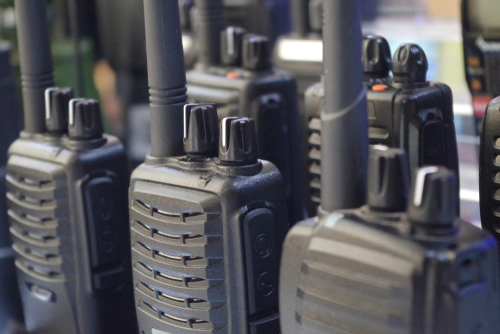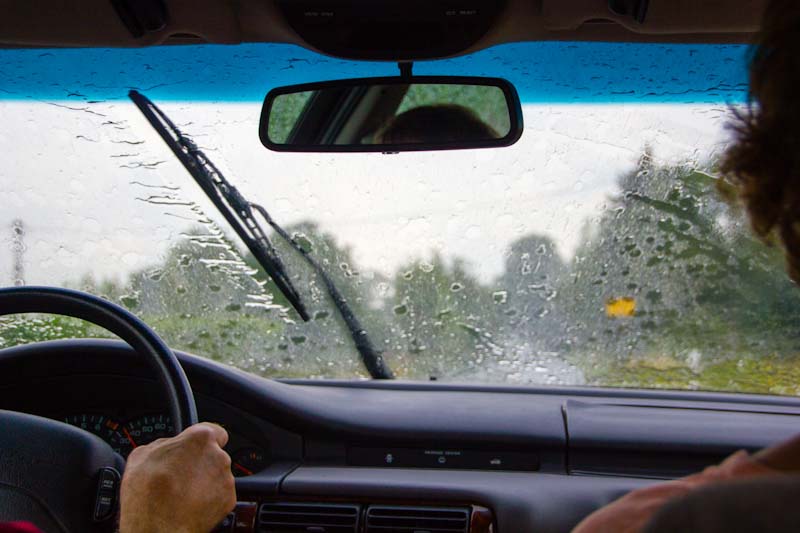Panic can be defined as a sudden overpowering terror that clouds one’s judgment making him or her act erratic and irrational.
History has shown us through wars, national emergencies, and various local disasters that a state of panic can trigger a profound state of dysfunction that leaves a person incapable of acting, stilling their every instinct of survival. Those that act, unaware of how to deal with a panic state and its effects, may, in fact, survive, but it becomes just a numbers game.
To survive during a crisis, you need to learn how to control yourself and deal with panic and its effects. Since panic is contagious, you have to do everything in your power to keep your cool, especially if you need to mitigate the risks caused by others.
Think of it like this, you are at the movies enjoying some times with your kids, a fire breaks out, and people start noticing it. One person starts screaming and rushes for the exit door. That’s pretty much all it takes to cause hysteria. Every single person will start to follow “the lead,” and soon enough, they will pile one over the other, making escape impossible for the rest of you.
Understanding panic
To deal with panic, we first have to understand that such a state of mind is a personal thing. It can be different from one person to another. Some are afraid of snakes; some have a phobia or self-limiting behavior that blocks them from enjoying life. In some cases, the simple image of a panic triggering element is enough to make their skin crawl.
Panic is also universal, and even the most well-adjusted individual out there will panic if placed in the right environment. The key element, precipitating panic—in even the most autonomous of us—is sudden exposure to the unfamiliar and the unexpected.
Panic follows a certain hierarchy, and it has various stages of development with predictable responses to the physical or mental upset.
Let’s envision a scenario to understand better how panic works. Let’s say you are taking your family out on a boat ride to enjoy a beautiful day. You are caught in a storm, and it can be frightening at first. Being an experienced navigator, there’s no need to panic, right?
Your wife is in the cabin trying to get the radio to work, while you and your son are working on the engine that has just stalled. There’s a loose wire dangling from the ignition, so you grab it and touch it to the coil. The small spark at the pole ignites the gas fumes in the bilge. The explosion throws you against the bulkhead. Fire starts spreading everywhere.
To make things worse, your boat broaches and a large wave swamps the deck. The hold starts to fill as a ladle dipped in a rain barrel. The water shorts out the pump. Now it’s time to panic!
You let go of yourself, and panic makes you scream, rant, act erratically. It all ends with you grabbing the last life-jacket right out of your son’s hands.
Right there, you are three phases deep in panic, and you didn’t even have the time to recognize the first two phases. Let’s rewind and see how you got in this mess, but also how you will get out of it.
Apathy
The first response in an evolving crisis or the calm before the storm, as many call it, can be distinguished by a state of under activity, apathy, and unproductive preparation for the impending disaster.
Some feel it’s a nuisance to be prepared, and practicing rescue and survival procedures is just not for them. That ounce of prevention is not worth their precious time. They believe fate is on their side, or some divine intervention will save the day.
It’s not even your boat, you’ve rented it, and the owner should be responsible for your safety. Right?
This fatalistic behavior of “letting others do it” for ourselves when we discuss disaster avoidance happens everywhere around us, and it can be deadly. We see it every day, with people believing that the government will take care of themselves in case of SHTF. The inability to act during “peace times” is the main thing that increases the body count during “war times.”
Disorganization
Too little, too late, can be described as the second stage of panic development. When you are on the boat, and the storm closes in, everyone will come to you for answers and instructions. They need to know now what can be done to reach home safely. Right now, when it’s too late.
All the efforts put into salvaging the situations created by apathy are unorganized, and time is wasted as the events unfold faster than you can react to them. Others will start to pray while some will become overactive, even if their efforts are random and ineffective. The first stage of real panic has settled in.
You and yours are just a moment away from irrational and self-destructive behavior. Now logic abandons the post and leaves room for the herd instinct to take the lead. In the collective mind, appears to be only one escape route or scenario, and everyone acts on it.
This can be observed in hotel fires or any other crowded places where fire creates panic. People will rush to a single exit point while other escape routes are ignored, or some become trapped in an elevator. Nobody bothered to take a look at the fire exit plan, and they now pay the price for their apathy.
In your case, you are trapped on a sinking boat, and everyone is fighting over too few life-jackets.
Panic
This stage can be defined as full-blown panic, and it starts to manifest as the boat starts to sink. Everyone ends up in the water, and their only efforts are concentrated on staying alive. Everyone reaches for something to hang onto and stay afloat, and a state of confusion settles in.
Even stranger is that your wife and kids are reacting without emotion, and they seem docile, withdrawn, and indecisive. These two responses mean the same thing; everyone is in panic, and we can notice both fight and flee instincts. Their behavior is aimless, and their thought patterns are random without a certain goal. They sweat, have tremors, startle easily, and are swallowing water.
Dependence
The full impact of the disaster has passed, and you survived while others have not. The remaining survivors are now strongly dependent on your stable leadership. They become childish and “needy,” and they will follow you no matter what you do. They have chosen you as their leader, and they will be loyal until the end.
Once you manage to survive the disaster, it’s time to nurture those that have survived it as well. This can be done in various ways depending on the environment. Since you are neck-deep in water, you have to explain to the survivors that they have survived the crisis. This may not be obvious at first, and some will continue to panic and act erratically. Try to get closer and support them, encourage them, and do whatever you can to take care of their needs. Assure and keep reassuring them that the worst has passed and rescue is imminent.
Rescue may, in fact, not be imminent, and maybe the scenario ended worse than depicted above. Maybe no one survived. That being said, let’s see what you can do to prevent such a scenario from becoming a reality.
Preventing panic
The first thing we need to understand is that we all have to identify the panic response, apathy. That single moment where no one assumed responsibility for the scene ahead. In every single survival situation, someone has to lead. Someone has to take charge, no matter the environment.
Such a person should require everyone in his party to have some sort of training, some self-rescue procedures. They should practice and imagine what would happen in a certain situation with the help of their leader.
This make-believe exercise may and will save lives if the scenario envisioned becomes a reality. This is what people fail to understand, and that’s why they keep making fun of preppers. They fail to see that by pro-acting to a disaster instead of reacting you it, you and yours have eliminated most of the unexpected. That unexpected factor that precipitates panic.
A real leader must emerge from the chaos and must give loud and clear orders. Every piece of information given should be precise and simplified so that everyone can follow. No one is left on the bench, and everyone should get a task.
When the event spirals out of control, remember that your first reflexive response is probably the wrong one. Stay still for a few seconds and sour out the alternatives. Then make a decision and put your plan into action. However, be prepared to change your plan as developing events dictate.
Keep a close eye on the victims and encourage them to do specific survival tasks. Do whatever you can to isolate and keep under control those that are in deep panic mode since they can pull others and act as irrational as they do.
How to recognize panic
Fear and panic are not easily hidden, and you should learn how to read the eyes. You can spot a panicking person if he or she has dilated pupils, they are blinking rapidly, and they tend to look down.
They may try to hide their face or protect their head, while others will literally cover their head with a pillow or seek refuge in the corner of a room. If you are not able to persuade them into action, you may have to lead them away from the event (if the situation requires you to do so).
Conquering your fear
Panic is caused by fear, and fear can be triggered by various factors. Some fear certain animals, while others fear certain scenarios, items, and so on. The list is long, and as we mentioned earlier, panic is personal. Fear can simply be defined as a human response to a lack of control.
In cases of people suffering from phobias or panic attacks, they have a strong urge and need to control themselves and their environment. They have become masters at finding excuses and practicing avoidance.
We are all fearful people, and many of us are uncomfortable if we are exposed to certain factors or if we have to face certain scenarios. These are normal responses, and usually, the unexpected unnerves all of us. However, you can cut your losses and gain control over your fears.
Here are some tips for doing so:
1. Start by accepting your phobia and understand that you are not crazy. Don’t fight your fears and even if you are uncomfortable, understand that this feeling will pass. Most likely, you are not in danger, anyway.
2. Face your fear. Start by exposing yourself gradually to the stimulus. Don’t give in to the flee response and look at it. Try to observe and study what frightens you. Start by experiencing your phobia from a safe distance.
3. Keep your ground and don’t flee. You may back off, but don’t run. When you manage to compose yourself, face your phobia again.
4. Teach yourself to expect the best, not the worst. This may require some cognitive therapy at first, and you need to apply what you’ve learned in a real-life scenario. For example, if you find yourself in a ski lift and you are afraid of heights, don’t ever consider that it may fall. Think about how it’s just a machine helping you to reach your goal, how it will bring you to the top of the mountain where you can enjoy a full day of skiing.
As preppers and survivalists, there’s an impending need to understand that phobias will get in your way when you have to face a survival situation. You must learn to diffuse these fears now, long before they can cripple you when you least expect it.
Concluding
In an unexpected survival situation, you may expect fear, panic, and paranoia to be present. These are instinctive responses that you will have to face, and you need to learn how to deal with them. You can do so by taking part in successful field experiences that help you gain confidence. Seek training and take your first steps into the unknown.













John | October 29, 2020
|
Thanks for the information.
Fabian O. | October 30, 2020
|
Excellent article. Panic prevents people from taking the best course of action, or from taking advantage of things and situations that could help in the case.
And yes, by exposing ourselves to certain situations, we can become better prepared. I´ve been “training” to live in the streets as a homeless for yrs now, exposing myself to many dangers and situations that I may have to face one day if SHTF (I´m sure I can´t bug in forever even if I´m well stockpiled).
Besides, doing that has allowed me to recon almost my entire city, map its resources and escapes, test equipment and skills in real-life situations and also gain fitness and familiarity with my equipment. It is important to know our limitations and also what we´re capable of. At first I wasn´t able to walk with my bag for a couple of ours.
I was afraid of sleeping in the streets, or dealing with drug addicts and criminals. It is still a dangerous thing and involves risks, but it´s unavoidable IMHO. And we can get better at being grey man, reading people and places and situations too. Situational awareness is in my opinion KEY for survival, whether in the woods or in the middle of a big city.
I have since then refined my tactics now I can spend days in the streets, scavenge, get water and food, even score paying gigs, stay dirty yet composed. I´ve always camped but I lacked this “survival” experience in a big city. But it is a constant practice so I keep doing it.
Chris | October 30, 2020
|
Interesting topic and worth exploring. One note on “dependence” I would mention is the tendency in a crisis to look for others to tell you what you should do and forgo critical thinking. The stories of people being instructed to go back up to their offices and complying during 9/11 comes to mind. Everyone likes to believe they wouldn’t be the type of person to follow this type of instruction, but history and studies of human behavior have shown over and over that when coming from a source of apparent authority, most will listen to such guidance, sometimes to their peril.